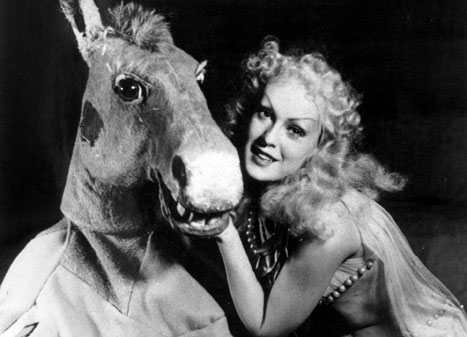PETRUCHIO
I swear I'll cuff you, if you strike again.
KATHARINA
So may you lose your arms:
If you strike me, you are no gentleman;
And if no gentleman, why then no arms.
Because I will BITE THEM OFF!
What if Katharina had a perfectly good reason for being so cranky all of the time? You'd be sore too if all you wanted to do was shed your clothes, change form, and run wild in the woods.
Author Sylvia Shults pitched me her idea of "Taming of the Shrew + Zombies", although when I heard "werewolf" I suggested that maybe Twilight had more than a little to do with it. :) I thought it sounded like fun.
And it is. A small book - barely 90 pages - I read it at the beach this weekend. Katharina gets a backstory! Haven't you ever wondered what her deal is? Why she's such a man hater (no I did not say "man eater", at least not yet :))? We learn of her doomed affair with Amadeo, a man she would never have been allowed to marry anyway, even if he hadn't been killed by a werewolf. Katharina (Amadeo was the only man ever allowed to call her "Kate") survived the attack, but alas she's now cursed. Literally.
With that little twist in mind, now you may begin to play out the familiar story. Petruchio has come to Padua to wive and thrive, and when he hears about the substantial dowry that Katharina brings, he takes up the challenge. How long will it be until she (pardon the expression) bites his head off? Is he the alpha male she's been looking for, without ever realizing what she needed?
I want to use this opportunity to bring up a topic of discussion. Many people have retold Shakespeare's tales in many different ways. Here, despite the fact that a new story element has been added and the whole book being written in modern prose, the actual Shakespearean dialogue is often kept. I find this jarring. If you add dialogue and that dialogue is modern English, why switch back to spoken Shakespearean just to mimic what's in the original script? Compare
West Side Story as an example. While everyone who ever sees that play can plainly tell that it is a direct port of
Romeo and Juliet, it manages to also be an entirely unique entity without suffering in the least for it.
What do you think? If somebody wants to take Shakespeare's story and play with it, would you like to leave in elements of the original, or just go ahead and write the parallel-universe version where you can do what you want?
I prefer the latter in a case like this. This book wants to be a romance novel, but it's too short and gimmicky (no offense, Sylvia!) to really accomplish that task. It's closer to young adult (though there's just enough sexy time for me not to give it to my 9yr old). So instead I say go for it - throw off the shackles of trying to too closely mimic your source material. Take the story of the shrew waiting to be tamed, and retell it however you want. Change the names, change the dialogue, and take as much time as you need to really dig into your backstory. There's plenty of opportunity to go all "bodice-ripper" here - lust, passion, individuals quite literally succumbing to their animal instincts! - so why not jump in with both feet? Go the West Side Story way, and make Twilight meets Shrew. Could be a winner!
Of course for every
West Side Story there is a
Shakespeare in Love, or a
Rosencrantz and Guildenstern Are Dead, showing that the opposite side of the argument is also true - you can use your Shakespeare foundation and create an amazing story right in the middle of it. In this case, however, I don't think the source material stands up the same.
Shrew doesn't really stand up to
R&J or
Hamlet in the modern reader/viewer's mind.
What do you think?








